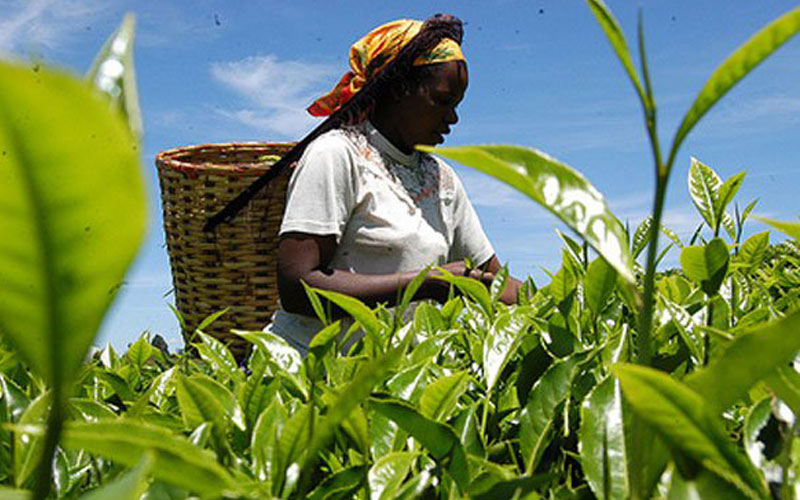Tea farmers hopeful despite prices falling to 12-year low
By Lewis Njoka, September 25, 2020Lewis Njoka @LewisNjoka
Tea farmers in the country are banking on a bumper harvest of green leaf and a better exchange rate from exports for higher bonuses than last year, despite the sector recording its lowest tea prices in the last 12 years, a top official in the industry has said.
KTDA Management Services director, Alfred Njagi said that generally, the take-home is higher due to higher volumes of tea and a better exchange rate for exporters because the shilling has depreciated.
“But this was eroded by lower market prices which were driven down by the huge volumes produced,” he said, adding that money in the pocket will be more. But if you are focused at the rates, they will be lower for this current year for the reasons I have given”.
Njagi said the increased volume of green leaf production witnessed in the last financial year was cancelled out by a sharp dip in tea prices, eating into farmers’ earnings.
Green leaf
Accordingly, he added, green leaf production went up by almost 30 per cent though this did not help much as it was happening in an environment characterised by overproduction globally.
In a statement sent to newsrooms last Friday, Kenya Tea Development Agency (KTDA) announced its turnover for the financial year ended June 30 increased by 14 per cent to Sh79 billion up from Sh69 billion the previous year.
This was due to greenleaf production by KTDA-managed factories increasing by 29 per cent to 1.45 billion kilogrammes up from 1.13 billion produced last year.
However, the average price of made tea dipped to its lowest in 12 years to stand at $2.38 (Sh258) per kilo, an 8.1 per cent decline compared to $2.59 (Sh281) in 2019. On average, 4.5kgs of green leaf make one kilogramme of made tea.
Samuel Nyandemo, a senior economics lecturer at the University of Nairobi, however, expressed doubts over the huge dip in prices, saying it could be as a result of corruption in the tea value chain.
“I think this is conmanship, I don’t think the prices of tea worldwide have shrunk that far.
We need to look at the issue of unnecessary costs, particularly operational costs from KTDA as a body and a chain of go-betweens in the form of middlemen,” he said.
Since the beginning of this week, KTDA-managed factories have been holding meetings to approve their annual audited accounts for the financial year ended June 2020 and declare the second and final payment, popularly called bonus.
So far, about 20 factories across the country have declared their bonus rates, all of them posting less than Sh30 per kilo.
Virtually all factories have announced reduced rate per kilo compared to last year with Gitugi Factory in Nyeri declining by Sh20 to stand at Sh26.35 down from Sh46 in 2019.
Similarly, prices at Kangaita Tea Factory in Kirinyaga declined by Sh10 to stand at Sh26.3 down from Sh36.05 last year.
The larger Gusii region has posted the lowest rates so far with Tombe, Keberigo, Gianchore and Siongo declaring Sh9.3, Sh10.4, Sh10.45 and Sh15 per kilo respectively.
“In determining the final payment, individual factories consider the revenue generated from tea sales, other income including interest from investments, dividends from KTDA Holdings less the cost of operations, dividends payable to their shareholders/farmers and taxes to Government if any, for the year,”explained Njagi.
Electoral area
He said this decision is made by the respective factories’ boards, which consist of elected farmers’ representatives from each tea growing electoral area.
Agriculture Cabinet Secretary Peter Munya has proposed a raft of regulations changes that will see buyers forced to add value to at least 40 per cent of their Kenyan tea purchases before exporting, among other changes.
Tea sector supports the livelihood of over 5 million Kenyans. Last year, the industry earned the country Sh117 billion in export earnings and Sh22 billion in local sales.
